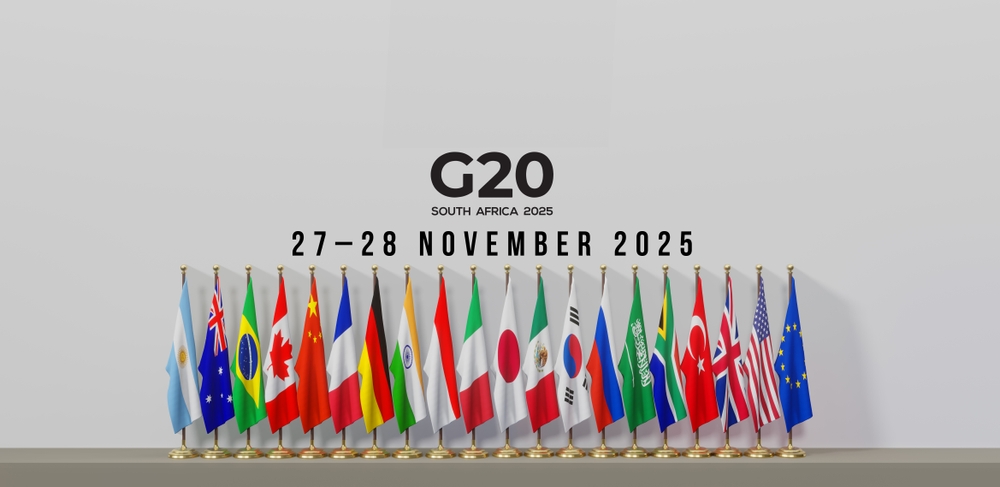Anti-capitalists, climate activists, women’s rights advocates and anti-migrant groups plan demonstrations, and they highlight South Africa’s struggles with poverty and inequality.
Police and army units staged a parade on Wednesday using helicopters, K-9 teams and motorcycle officers to display strength before protests at this weekend’s G20 summit in Johannesburg.
Officials deployed 3,500 extra police officers and placed army units on standby under the National Joint Operational and Intelligence Structure, which unifies security agencies for major events.
Lieutenant General Tebello Mosikili told reporters that authorities anticipate protests in Johannesburg and other major cities.
She affirmed the right to protest and insisted authorities will enforce lawful limits.
Police assigned specific gathering zones for protesters near the summit venue, which sits beside the country’s largest soccer stadium.
Airports Company South Africa created “speakers’ corners” in airports, and security will escort demonstrators there if they protest during the arrival of world leaders.
Organisers expect participation from anti-capitalists, climate defenders, women’s groups, anti-migrant movements and other activists who spotlight inequality and poverty.
A trade union representing Afrikaner white minority members ignited public debate by mounting billboards across Johannesburg that read: “Welcome to the most RACE-REGULATED country in the world.”
City officials removed one billboard, and the Afrikaner trade union Solidarity threatened legal action.
The billboards reference affirmative action laws that support opportunities for Black South Africans and have fueled diplomatic tension between South Africa and the United States.
President Donald Trump plans to boycott the G20 summit because he claims the Black-led government enforces racist, anti-white measures and persecutes the Afrikaner minority.
Observers widely dismiss his accusations as unfounded, yet the US boycott threatens the momentum of the first G20 summit in Africa.
Other organisations intend to use the summit to spotlight multiple issues.
Women for Change calls for a national shutdown on Friday, the day before the summit.
The group urges women to stay away from work to protest South Africa’s extreme levels of gender-based violence and femicide.
The organisation states that South Africa cannot discuss growth while women die every 2.5 hours.
An anti-immigration group plans to protest unemployment and poverty, citing South Africa’s 31% jobless rate.
A coalition focused on climate change and wealth inequality will host an alternative summit in another part of Johannesburg starting Thursday, arguing that the G20 serves the wealthy.
Security Measures and Public Reaction
Authorities in Johannesburg launched a major cleanup and repair drive before the summit to address the city’s failing infrastructure.
President Cyril Ramaphosa joined the effort last week and worked in green overalls in Soweto, located a few miles from the summit site.
Residents view the costly preparations for the two-day meeting with skepticism after years of broken streetlights, damaged and potholed roads and unreliable services that cause water and electricity outages.
Johannesburg resident Lerato Lelusa said the summit will not help ordinary people and will waste public money.
Global Gathering on the Horizon
The summit begins on Saturday and will draw leaders and senior diplomats from more than 40 countries.
Institutions such as the United Nations, the World Bank, the International Monetary Fund and the World Trade Organisation will also attend.


